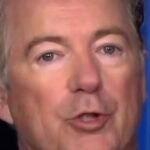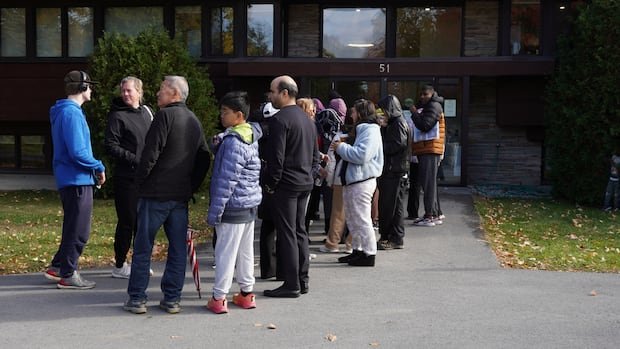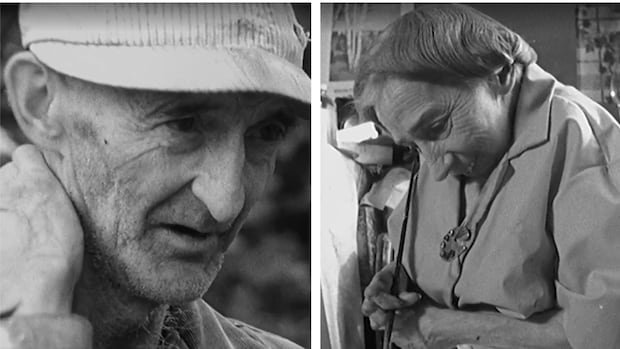It is a election focused on the threats of US President Donald Trump, Canada’s sovereignty and the cost of living.
From the beginning, however, the past work of liberal leader Mark Carney in the private sector and the rules governing the assets of political leaders have also been in the center of attention.
Carney has said that he put all his assets exchanged publicly in a blind trust, and that he will not have control over what happens to those assets while they are there. He also said that there will be a conflict screen of interest to prevent him from participating in any discussion or decision that involves Brookfield Asset Management or Stripe, since he sat on the board of directors of both companies.
The office of the Ethics Commissioner has not published the financial dissemination of Carney, and Carney has been very frowning about what he put exactly in blind trust.
According to Brookfield Asset Management 10-K report presented to the stock exchange and values commission, Carney had $ 6.8 million in options on shares not exercised as of December 31.
However, Brookfield’s shares have fallen since then, from $ 54.21 to $ 49.43 from the US, that is, those shares, if they are not yet exercised, they would now be worth around $ 4.8 million of the US.
The office of the Prime Minister (PMO) will not say if Carney exercised those options on actions before putting her assets in blind trust, if she sold actions or if the trust now has the shares options, which do not expire until 2033 and 2034.
Nor and has revealed the other assets that he could have put in blind trust.
When asked about his assets, Carney has repeatedly said that everyone entered blind trust with the exception of cash, a country house and his family home.
Carney and his wife bought their home in the exclusive neighborhood of Rockcliffe Park in Ottawa for $ 1.3 million in August 2003, the same year that it became vice governor of the Bank of Canada. A search search shows that the mortgage of $ 600,000 that they took with the Royal Bank of Canada at that time is still registered, although it is not known how much the mortgage may have been paid over the years.
The PMO refuses to say where the Carney’s cabin is located.
Different positions, different rules
Carney is not the first prime minister whose publicly negotiated assets have been protected from the view.
When former liberal prime minister Justin Trudeau entered politics, said his company JPJT Canada and an interest in a numbered company that owned a property. But their assets that are negotiated publicly remained within a separate numbered company, and then within a blind trust.
The rules of ethics governing federal politicians of Canada vary considerably, depending on their work.
According to the Conflict of Interest, the Prime Minister, the Cabinet Ministers and the parliamentary secretaries cannot possess “controlled assets,” said Melanie Rushworth, communications director of the Office of the Ethics Commissioner.
“These are active whose value could be seen directly or indirectly affected by the decisions or the policy of the government,” he said. “Examples include closed mutual bonds, bonds and funds.”
People in these works have an option: sells the assets that are negotiated publicly in a transaction of arm length or put them in a blind trust, he said.
However, opposition parties leaders do not have to follow the same rules.
If they are chosen as MPS, they are subject to a different set of guidelines: the interest conflict code. While they must withdraw from the debates and votes on the questions in which they have a private interest, they can continue to directly possess actions, bonds and other controlled assets.
“However, parliamentarians must publicly declare their property of these assets in the Public Registry,” said Rushworth. “A summary of your personal and financial information is published at the end of your initial compliance process.”
Party leaders who are not members of Parliament, such as the co-leader of the Green Jonathan Pedneault party or the leader of the People’s Party of Canada, Maxime Bernier, do not have to submit reports of personal financial dissemination before the office of the Ethics Commissioner.
Pailievre sold international funds, bought Canadian
While Carney’s assets have been in the center of attention, he has focused less on the assets of other party leaders.
The most recent financial dissemination of the conservative leader Pierre Poilievre to the Ethics Commissioner showed investments in six funds quoted in exchange: Ishares MSCI Singapore, Ishares MSCI Switzerland, Vanguard GL Val Detr, MSCI World Index, Purpose Bitcoin and Amer Cent Avanti intl l/c.
However, when the president of the United States, Donald Trump, began to threaten Canada, Pailievre sold his international funds and bought the Canadians, said Conservative Party Sam Lilly spokesman.
Pailievre now invests in (VCE) Vanguard Ftse CDA IDX ETF, BTCC – Purpose Bitcoin ETF and VNRDF Vanguard Ftse CDA IDX ETF.
While Pailievre has repeatedly criticized Carney’s participation in Brookfield, one of the main assets of the ETF (VCE) Vanguard Ftse Canada Index ETF is Brookfield Corporation.
The dissemination of Pailievre also lists the income from real estate rental and a mortgage with Scotiabank.
A search in the land registry shows that Pailievre bought a house in Grelyy, a suburban community in the south rural of Ottawa, in July 2015 for $ 550,000 with a mortgage of $ 440,000 from Scotiabank. The mortgage is still registered in the property, but it is not known how much the mortgage has been paid.
Poilievre and his family currently live in Stornoway, the Rockcliffe Park residence of the official opposition leader, three minutes by car from the Carney House.
The new leading financial dissemination of the Democratic Party Jagmeet Singh does not show any assets that is negotiated publicly.
Singh has a house in Brampton, Ontario, while his wife owns a house in Burnaby, BC, which is partly rented. Both houses have mortgages with RBC.

The leader of Bloc Québécois, the financial dissemination of Yves-François Blanchet, also does not list any assets that are publicly negotiated. He owns a company, Diffusion YFB, which appears as inactive but presented an annual report before the Quebec government on March 21, the first time in more than four years.
His dissemination also lists a debt to Revenu Québec. While his office did not reveal the nature of the debt, he said he conforms to the rules of the Ethics Commissioner.
The co-leader of the Green Party, Elizabeth May, rents her house, but her financial dissemination shows that she is also guarantor of the mortgage of one of her husband’s properties. May said transparency is important.
“Obviously, as parliamentarians, we must be completely transparent about investments, especially when our decisions could personally benefit,” he said.









